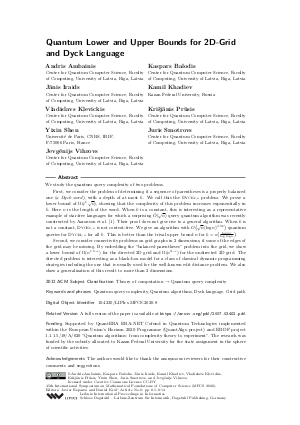LIPIcs.MFCS.2020.8.pdf
- Filesize: 0.58 MB
- 14 pages

 Creative Commons Attribution 3.0 Unported license
Creative Commons Attribution 3.0 Unported license








Feedback for Dagstuhl Publishing